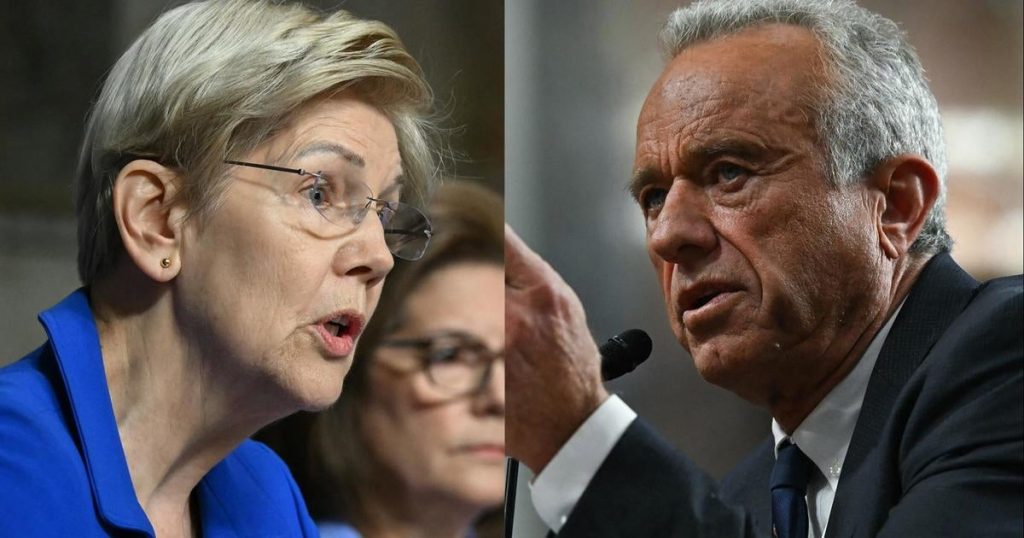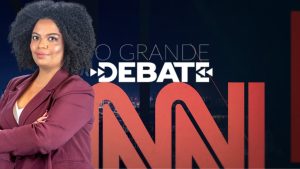As Robert F. Kennedy Jr.’s confirmation hearings to serve as the nation’s top health official play out on Capitol Hill, President Trump’s nominee to lead the Department of Health and Human Services is facing scrutiny not only for his anti-vaccine views, but whether he profits from them.
If confirmed, Kennedy would wield control over federal vaccine policy and the regulation of drugmakers, even as he stands to potentially profit from vaccine-related litigation.
How Kennedy made money from lawsuits
Kennedy for years has earned referral fees from Wisner Baum, a Los Angeles personal injury law firm that is currently suing Merck, alleging the pharmaceutical giant failed to properly warn the public about risks from its vaccine against human papillomavirus (HPV), Gardasil, according to financial disclosure documents filed by Kennedy with the Office of Government Ethics.
Wisner Baum is representing a plaintiff in a trial against Merck and other lawsuits are in the works in North Carolina.
“An overwhelming body of scientific evidence, including more than 30 years of research and development along with real world evidence generated by Merck and by independent investigators, continues to support the safety and efficacy profiles of our HPV vaccines,” Rahway, New Jersey-based Merck said Tuesday in a statement on the litigation. “The plaintiff’s allegations have no merit, and we remain committed to vigorously defending against these claims in the upcoming trial.”
Senators grill RFK Jr. on vaccinations in confirmation hearing
05:12
In a congressional hearing on Wednesday, Sen. Elizabeth Warren, a Massachusetts Democrat, repeatedly asked Kennedy if he would agree to forgo payments stemming from litigation against drugmakers after disclosing in Ethics Office filings that he might collect legal fees for referring potential plaintiffs in Wisner Baum’s suits against Merck over its HPV vaccine, which is to prevent cervical cancer.
Kennedy has made about $2.5 million since 2022 in his work with the law firm, including $850,000 last year, public records show. Kennedy, himself a longtime personal injury lawyer, could earn even more if the litigation against Merck prevails given that he is opting to keep his stake in the pending court case, according to ethics documents filed before his confirmation hearings.
Kennedy has a consulting arrangement to refer cases to Wisner Baum, which is pursuing cases related to the HPV vaccine Gardasil. If Kennedy is confirmed, he said he would resign from that arrangement.
“I am entitled to receive 10% of fees awarded in contingency fee cases referred to the firm,” Kennedy stated in his ethics pledge. According to the document, Kennedy will retain an interest in cases that do not involve the U.S. as a party and in which the U.S. does not have a “direct and substantial interest.”
At the same time, Kennedy vowed to divest his rights to payment in contingency fee cases in which the U.S. is a party or has a direct or large interest to a “non-dependent, adult family member.”
Financial conflict of interest?
Kennedy’s plan to continue collecting contingency fees while serving as Health and Human Services secretary raises questions as a matter of ethics and policy, according to Kathleen Clark, a law professor at Washington University in St. Louis, “It’s very unusual for a cabinet secretary to retain an interest in contingency fee litigation,” Clark told CBS MoneyWatch. “It’s troubling.”
For example, if Kennedy stands to financially gain in lawsuits against Merck or other drugmakers, his impartiality as HHS secretary could face scrutiny if the companies faced a federal enforcement action or submitted a drug for government approval, Clark added.
Wisner Baum said it hasn’t paid Kennedy for his work linked to the firm’s suits against Merck, which is just getting started in California.
The firm “has only compensated Mr. Kennedy for Monsanto Roundup-induced non-Hodgkins lymphoma cases, Woolsey Fire cases and Paradise/Camp Fire cases. All of these cases alleged corporate wrongdoing that caused life-changing harm to victims,” Wisner Baum said in a statement to CBS MoneyWatch.
“We are currently in trial in the first Gardasil case in Los Angeles. We hope, like in Roundup, soundbites take a backseat to truth, take a backseat to actual evidence, and a jury returns a verdict sending the same message multiple juries did in Roundup — consumers deserve to know the truth, and politics has nothing to do with it,” said Wisner Baum’s managing partner, R. Brent Wisner, alluding to long-running ligation against Monsanto, now owned by Germany’s Bayner, over a weedkiller alleged to cause cancer.
Kennedy also made another $326,056 in salary and benefits from the Children’s Health Defense, which he founded and formerly chaired, according to his ethics filings. The nonprofit has filed dozens of state and federal lawsuits challenging vaccine and public health mandates. Its targets include the federal agencies that Kennedy would run at HHS.
During the hearing, Warren pointed to several changes Kennedy could make that might enrich him in connection with such lawsuits if he is approved as health secretary. That includes appointing anti-vaccine advocates to vaccine advisory panels, removing vaccines from recommendations or changing the way the vaccine injury compensation program works.
Kennedy would not commit to Warren’s request to forgo contingency fees while serving as HHS secretary.
“No one should be fooled here, as Secretary of HHS Robert Kennedy will have the power to undercut vaccines and vaccine manufacturing across our country,” Warren said.
A spokesperson for Kennedy did not respond to a phone message requesting comment. Representatives for the Trump transition team could not immediately be reach for comment.
MAHA trademark pending
Earlier on in Wednesday’s hearing, Sen. Mike Crapo, a Republican of Idaho, asked Kennedy if there was “anything that you are aware of in your background that might present a conflict of interest within the duties of the office to which you have been nominated?”
Kennedy replied “No, Mr. Chairman.”
As part of the confirmation proceedings, Kennedy in December disclosed earning $100,000 from variations of his slogan, “Make America Healthy Again” and its abbreviation — MAHA — on stickers, hats and hoodies. Kennedy had in recent months applied for trademark protection for the phrase, setting the stage for marketing supplements, vitamins, essential oils and cryptocurrency, according to documents filed with the U.S. Patent and Trademark Office.
Kennedy has since transferred ownership of the trademark application to a limited liability company managed by Del Gibtree, a longtime anti-vaccine activist.
The Associated Press
contributed to this report.
Kate Gibson is a reporter for CBS MoneyWatch in New York, where she covers business and consumer finance.








